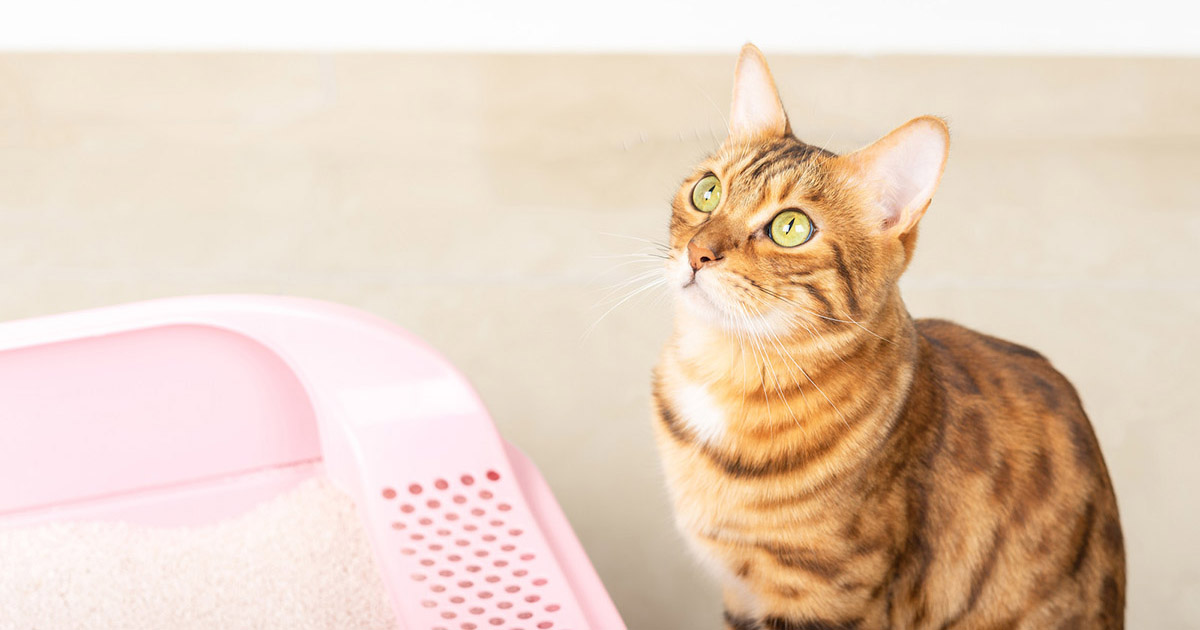What're your opinions concerning Can You Flush Cat Poo or Litter Down the Toilet??

Introduction
As pet cat owners, it's necessary to bear in mind how we throw away our feline friends' waste. While it might seem convenient to flush pet cat poop down the commode, this method can have destructive effects for both the atmosphere and human wellness.
Environmental Impact
Purging pet cat poop presents harmful pathogens and parasites right into the water system, presenting a substantial danger to water environments. These impurities can adversely influence aquatic life and compromise water quality.
Health Risks
In addition to ecological worries, purging feline waste can also posture wellness dangers to humans. Cat feces may have Toxoplasma gondii, a bloodsucker that can trigger toxoplasmosis-- a possibly severe illness, specifically for expectant women and individuals with damaged body immune systems.
Alternatives to Flushing
Luckily, there are much safer and extra liable ways to deal with feline poop. Think about the following choices:
1. Scoop and Dispose in Trash
The most usual method of getting rid of feline poop is to scoop it into an eco-friendly bag and throw it in the garbage. Make sure to make use of a committed trash inside story and get rid of the waste immediately.
2. Use Biodegradable Litter
Go with naturally degradable cat trash made from products such as corn or wheat. These litters are environmentally friendly and can be securely taken care of in the garbage.
3. Hide in the Yard
If you have a lawn, take into consideration hiding feline waste in a marked area away from vegetable gardens and water resources. Be sure to dig deep adequate to prevent contamination of groundwater.
4. Mount a Pet Waste Disposal System
Invest in a pet garbage disposal system particularly created for cat waste. These systems use enzymes to break down the waste, decreasing odor and environmental influence.
Final thought
Liable family pet possession prolongs past offering food and shelter-- it likewise includes proper waste monitoring. By refraining from purging feline poop down the bathroom and selecting alternative disposal techniques, we can decrease our environmental footprint and secure human health and wellness.
Why Can’t I Flush Cat Poop?
It Spreads a Parasite
Cats are frequently infected with a parasite called toxoplasma gondii. The parasite causes an infection called toxoplasmosis. It is usually harmless to cats. The parasite only uses cat poop as a host for its eggs. Otherwise, the cat’s immune system usually keeps the infection at low enough levels to maintain its own health. But it does not stop the develop of eggs. These eggs are tiny and surprisingly tough. They may survive for a year before they begin to grow. But that’s the problem.
Our wastewater system is not designed to deal with toxoplasmosis eggs. Instead, most eggs will flush from your toilet into sewers and wastewater management plants. After the sewage is treated for many other harmful things in it, it is typically released into local rivers, lakes, or oceans. Here, the toxoplasmosis eggs can find new hosts, including starfish, crabs, otters, and many other wildlife. For many, this is a significant risk to their health. Toxoplasmosis can also end up infecting water sources that are important for agriculture, which means our deer, pigs, and sheep can get infected too.
Is There Risk to Humans?
There can be a risk to human life from flushing cat poop down the toilet. If you do so, the parasites from your cat’s poop can end up in shellfish, game animals, or livestock. If this meat is then served raw or undercooked, the people who eat it can get sick.
In fact, according to the CDC, 40 million people in the United States are infected with toxoplasma gondii. They get it from exposure to infected seafood, or from some kind of cat poop contamination, like drinking from a stream that is contaminated or touching anything that has come into contact with cat poop. That includes just cleaning a cat litter box.
Most people who get infected with these parasites will not develop any symptoms. However, for pregnant women or for those with compromised immune systems, the parasite can cause severe health problems.
How to Handle Cat Poop
The best way to handle cat poop is actually to clean the box more often. The eggs that the parasite sheds will not become active until one to five days after the cat poops. That means that if you clean daily, you’re much less likely to come into direct contact with infectious eggs.
That said, always dispose of cat poop in the garbage and not down the toilet. Wash your hands before and after you clean the litter box, and bring the bag of poop right outside to your garbage bins.
https://trenchlesssolutionsusa.com/why-cant-i-flush-cat-poop/

Do you really like reading up on How to Dispose of Cat Poop and Litter Without Plastic Bags? Try to leave a remark directly below. We will be interested to hear your reactions about this write-up. We are looking forward that you visit us again in the near future. In case you appreciated our post plz don't forget to share it. Thanks so much for your time invested reading it.
Get A Free Quote